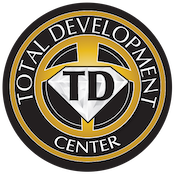How to Write Your College Admissions Resume

A resume is a tool used by job seekers to describe their experience and accomplishments. Here are a few statistics about 2023 resumes:
- 51% of resumes have irrelevant buzzwords, cliches, and wrong pronoun use (Cultivated Culture, 2021)
- A “key skills” section with 15-20 words can greatly increase a job seeker’s chance of getting an interview
- 54% don’t tailor their resumes to each position or employer (CareerBuilder, 2019)
- Action verbs increase the chances of an interview by 140%
- Leadership oriented words can enhance a resume by 51%
With all the rules and qualifications, why would a high schooler need a resume? Because colleges want a summary of your accomplishments, extracurriculars, work history, and hobbies. They want to know at a glance what’s important to you, but more importantly, how it will benefit them over the course of the next four years. In this article, we’ll cover the basics of a college admissions resume.
Crafting a College Application Resume
A college admissions resume is an important tool for students to showcase their skills, experiences, and accomplishments to potential universities. You’ll need to include relevant information such as education, work experience, volunteer experience, extracurricular activities, awards and honors, and any other relevant information that will help you stand out from the competition.
In some sense, you could think of it as the resume version of your college essay, just heavier on the facts than on the transformation, and in a more scannable format. In the business world, the average time spent reading a resume for 2022 is 6-7 seconds (Zety). Your resume for college works the same way — a very brief overview of the highlights of your high school experience. Admissions officers will glance at it quickly, so make sure the most important things stand out. This may vary depending on what school you’re applying to. You’ll want to tailor your resume to each school you’re applying to.
What Should You Include?
When crafting your college resume, it’s important to include all of the necessary information that will help you stand out from the competition. This includes your:
- Contact information (name, address, phone number)
- Educational background (high school diploma or GED certificate)
- Work experience
- Volunteer experience
- Extracurricular activities (clubs, sports teams, etc.)
- Awards and honors received, including scholarships
- Any other relevant information that could help you get accepted into the university of your choice
To tailor your college admissions resume to each school you’re applying to, take ample time to do your research. Consider these questions:
- Why do you want to go to this particular college?
- How will you complement the student body?
- What’s the most important criteria this college is looking for?
Since Covid hit hard while many of today’s college seekers were in high school, colleges want to know how you’re going to take care of yourself. Do you understand self-care? How do you contribute to your community? What’s your family life like and how do you contribute? What else are you working on during school and summers?
Tips for Writing a Resume for College
When writing your college resume, it’s important to keep it concise yet comprehensive. Tailor it to each school you are applying for by highlighting only the most relevant experiences and accomplishments.
Make sure to proofread your resume multiple times before submitting it, as errors can be off-putting for potential employers or universities. (Reading it slowly out loud will help you catch any missing or wrong words your brain automatically includes for you.
Finally, don’t forget to include references if requested, as this can give you an edge over other applicants.
